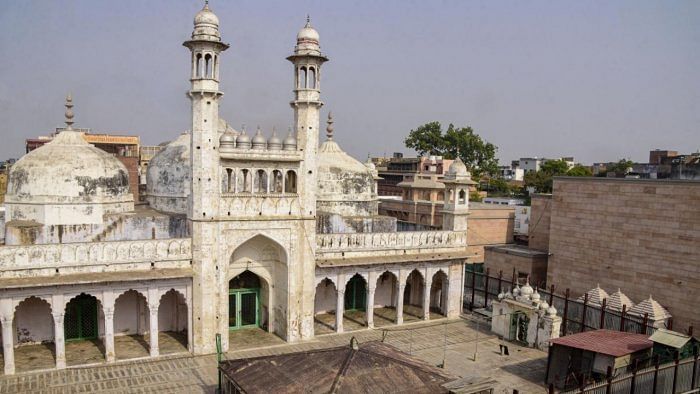
In a development reflecting division among the Hindu litigants in the Kashi Vishwanath-Gyanvapi Mosque case currently pending in a Varanasi court, one of the main litigants in the case has written to the President Droupadi Murmu seeking permission for 'euthanasia' citing 'harassment' from the other Hindu petitioners in the matter.
The litigant, Rakhi Singh said in her letter to the President that she would wait for a response till Friday and after that she would take a decision in this regard on her own.
Rakhi is among the four women, who had initially approached the Varanasi court last year seeking permission to perform 'puja' at the Shringar Gauri shrine situated inside the Gyanvapi Mosque premises.
She said that the other Hindu litigants and their lawyers had launched a campaign against her to 'defame' her and her family by spreading 'disinformation'.
''My other four women companions, their lawyers Harishankar Jain and his son Vishnu Shankar Jain have been spreading disinformation about me and my family with a view to defame us in the eyes of the society.....some government officials are also involved in this conspiracy,'' Rakhi said in her letter.
''These people spread rumours last year that I am withdrawing my case from the court though there was no such indication or statement from me or my family,'' she said further.
''I, therefore, request you to allow me to commit euthanasia so that I can get rid of this mental agony,'' she said.
Harishankar Jain, however, refuted the allegations and said that neither he nor his clients ever tried to defame Rakhi Singh.
The letter from the main Hindu litigant comes close on the heels of the decision by a Varanasi court to club all the seven cases pertaining to the Gyanvapi Mosque dispute being heard at different courts in Varanasi.
District judge A.K.Vishwesh had passed the order on an application filed by four Hindu women, who had contended in their application that all the seven cases which were being heard at different courts in Varanasi, were of a 'similar' nature and that they should be clubbed and heard by a single court.
The premises had been a bone of contention between the two communities for the past several decades but there was a renewed clamour to ''take back'' the Kashi Vishwanath Temple premises by the saffron outfits after the favourable decision of the apex court in the Ram Temple case.
The Hindu petitioners contended that a part of the temple had been demolished by the Mughal emperor Aurangzeb in the 17th century. The Muslim side contended that the Mosque existed before the reign of Aurangzeb and also claimed that the same had also been mentioned in the land records.